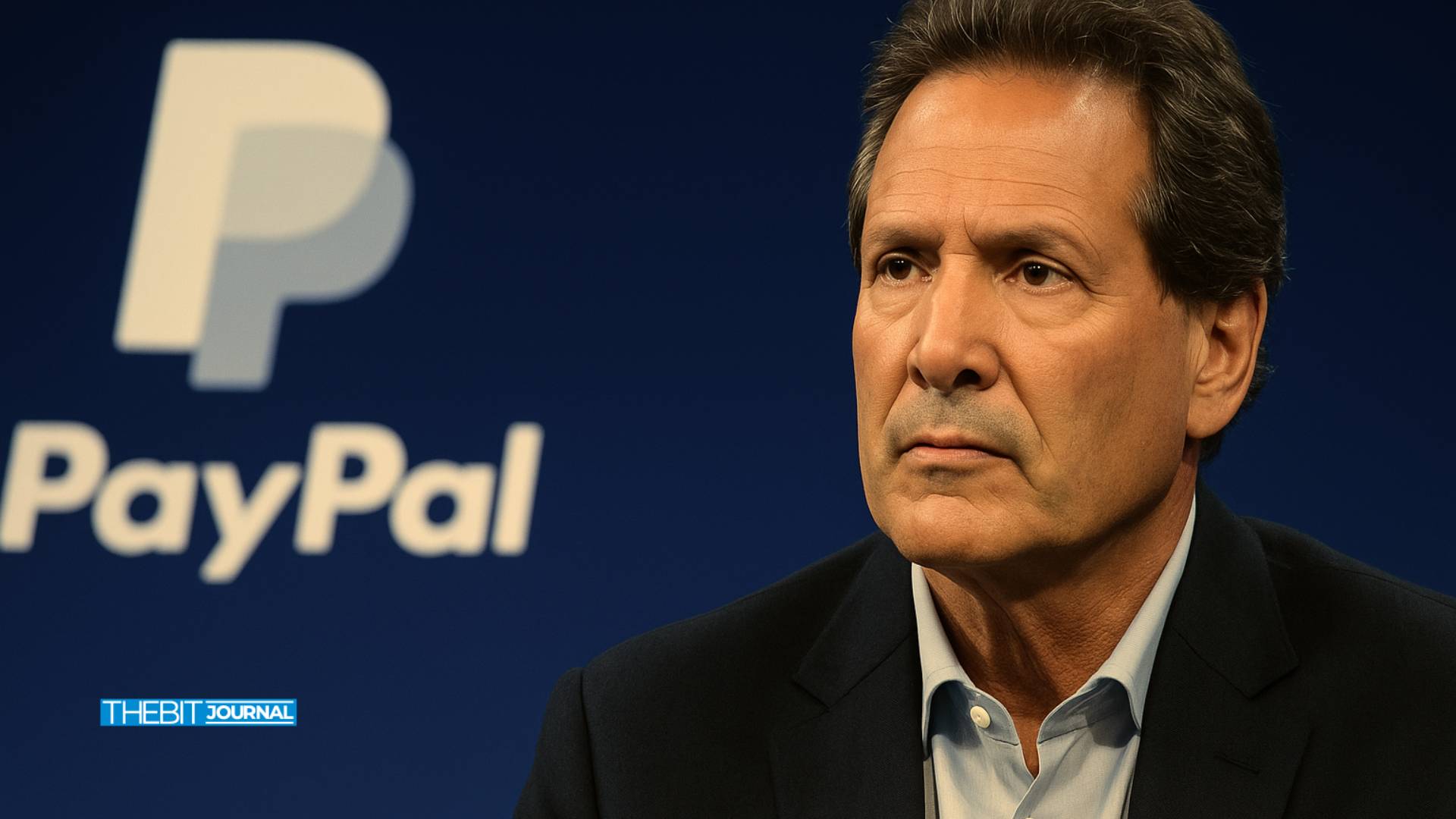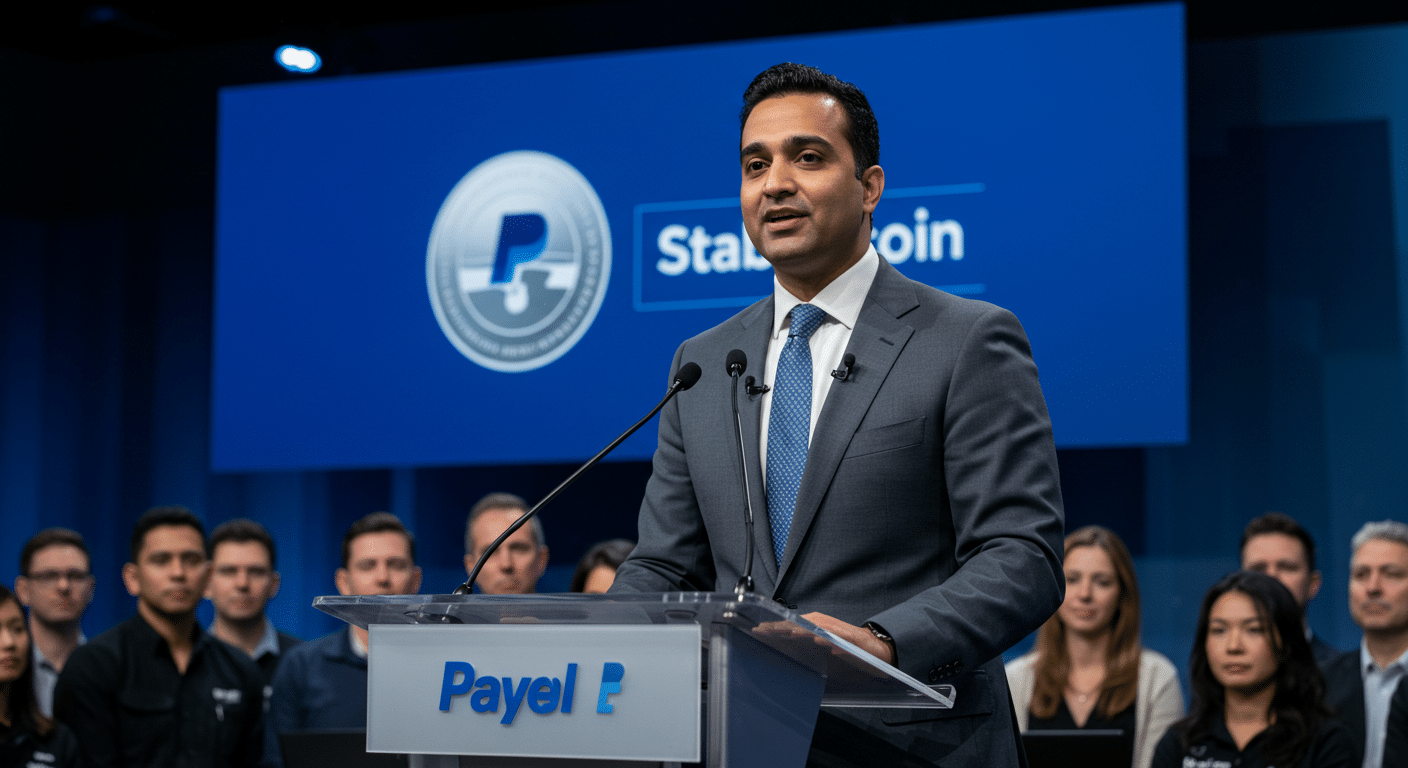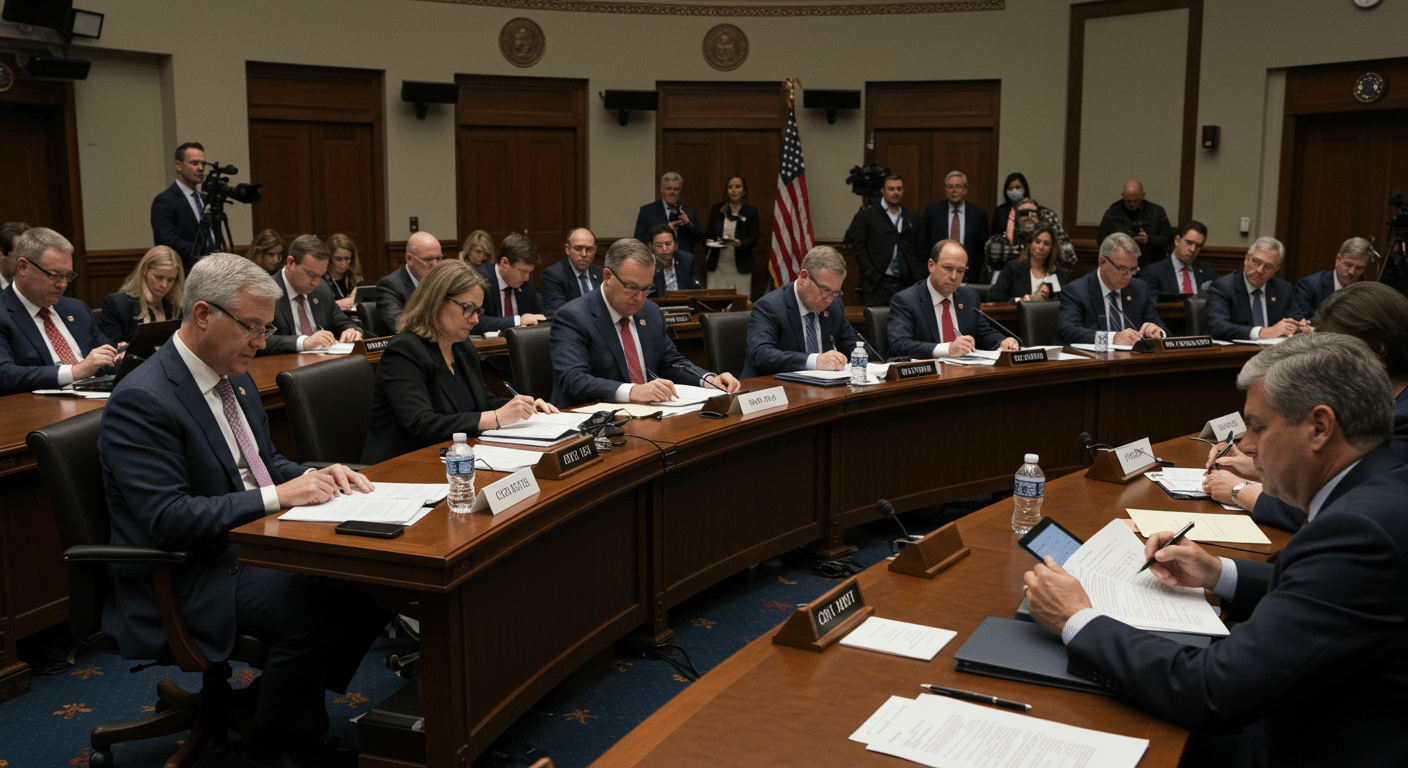PayPal CEO Warns: GENIUS Act Could Spark U.S. Stablecoin Breakout
0
0

The path to widespread stablecoin adoption in the United States faces delays despite progress in legislation and infrastructure development. PayPal CEO Alex Chriss confirmed that consumer demand remains limited and practical usage of stablecoins is still evolving. Although PayPal leads in early deployment, the technology struggles to replace traditional payment methods in everyday transactions.
PayPal CEO Says Stablecoins Lack Traction
PayPal CEO Alex Chriss confirmed that U.S. consumers are not yet adopting stablecoins for daily financial activities at scale. Their advantages are challenging to explain to a regular person in America, even though stablecoins are used in swift and affordable cross-border transactions. The majority of consumers still don’t take any action to search for alternatives to credit cards, mobile apps, and bank transfers.

Chriss added that PayPal launched one of the first large-scale financial institution-backed stablecoins in 2023, aiming at a faster transfer. Nevertheless, the coin has been subject to sparse usage by consumers, largely due to its poor familiarity and lack of incentives. PayPal continues to focus on building tools and infrastructure to support stablecoin adoption on a broader scale.
Although the talk about stablecoins is getting louder, consumers have not yet been keen on shifting their financial habits. At this point, they do not yet find apparent value in using trusted payments. PayPal CEO said changing habits takes time, especially without tangible benefits for users.
US Lawmakers Push for Crypto Oversight
Recent legislative activities can be described as a turning point for digital currencies and stablecoins in the U.S. The GENIUS Act passed the Senate and now awaits a vote in the House of Representatives. Lawmakers believe this would result in a higher quality of legal clarity and user protection.
PayPal’s CEO supports legislative progress and believes that clearer rules will increase confidence among businesses and consumers. He stated that such regulation will legitimize digital assets and promote responsible innovation. The company considers legal support a way of establishing trust and unleashing investment opportunities.

Another crucial bill is in development that is likely to redesign the ways in which the U.S. regulates digital assets. Congress can soon decide whether stablecoins and other digital tokens are to be regulated by the SEC or CFTC. PayPal’s CEO acknowledged that this decision will affect how quickly new products reach users and financial markets.
PayPal Sees Global Potential for Stablecoins
PayPal also targets international markets where traditional banking systems are outdated or expensive. The company believes stablecoins could revolutionize cross-border payments for underserved populations. By addressing fees, delays, and inefficiencies, PayPal hopes to drive global stablecoin adoption.
Chriss said cross-border payments can introduce stablecoins to users who lack modern banking access. He believes adoption may grow faster overseas than in the U.S., where financial tools are already advanced. PayPal continues to invest in education and partnerships to show users the real-world advantages of stablecoins.
Still, PayPal CEO highlighted that American users need better use cases and real rewards to consider switching. Until people see clear improvements to their financial lives, adoption will remain low. PayPal remains committed to improving usability and security for stablecoins through ongoing development and investment.
Summary
PayPal CEO confirmed that stablecoin adoption in the U.S. remains low due to weak consumer interest and habit persistence. PayPal is dominant in terms of infrastructure and cross-border transaction use cases, but the scope of domestic use is yet to take off. Legislative efforts like the GENIUS Act could accelerate adoption by offering legal clarity and protections. The daily usage of stablecoin by American users will, however, be limited until it is evident to the mass of users of the positive value of using one.
FAQs
What is PayPal’s role in stablecoin development?
PayPal was one of the first major financial companies to launch its own stablecoin in 2023.
Why is stablecoin adoption low in the U.S.?
Consumers do not yet see enough value or incentives to switch from traditional payment tools.
How could legislation affect stablecoins?
Laws like the GENIUS Act could provide legal clarity and protections, encouraging more users and businesses to participate.
What markets are most promising for stablecoin adoption?
PayPal sees greater potential in underserved regions with outdated or expensive financial systems.
What are the next steps for crypto regulation?
Congress is working on a digital asset market structure bill that could assign oversight responsibilities and provide more guidelines.
Glossary of Key Terms
- PayPal CEO: Chief Executive Officer of PayPal, currently Alex Chriss.
- Stablecoin: A type of digital currency tied to a stable asset like the U.S. dollar.
- Stablecoin Adoption: The process by which individuals and businesses begin using stablecoins in daily transactions.
- GENIUS Act: A proposed U.S. law that aims to create regulatory clarity for digital currencies.
- CFTC: Commodity Futures Trading Commission, a possible regulator for digital assets.
- SEC: Securities and Exchange Commission, another agency competing for oversight of cryptocurrencies.
- Cross-border Payments: Financial transactions made between parties in different countries.
- Mobile App Payments: Digital transactions conducted via smartphones using financial applications.
- Digital Asset Market Structure Bill: Proposed legislation to determine rules for the crypto market.
- Crypto Regulation: Legal framework governing the use and oversight of cryptocurrencies and digital assets.
References
Read More: PayPal CEO Warns: GENIUS Act Could Spark U.S. Stablecoin Breakout">PayPal CEO Warns: GENIUS Act Could Spark U.S. Stablecoin Breakout
0
0
 Manage all your crypto, NFT and DeFi from one place
Manage all your crypto, NFT and DeFi from one placeSecurely connect the portfolio you’re using to start.


